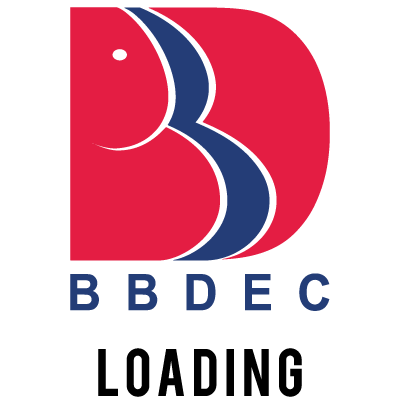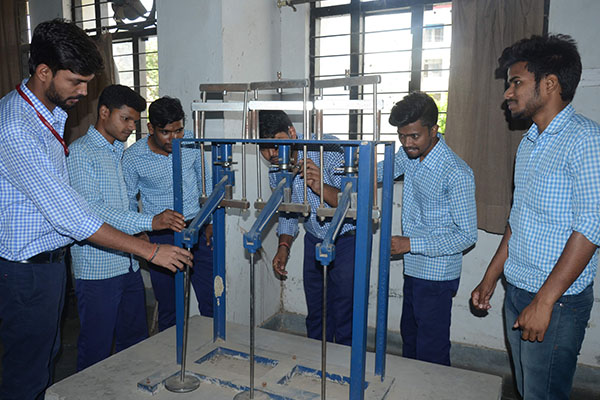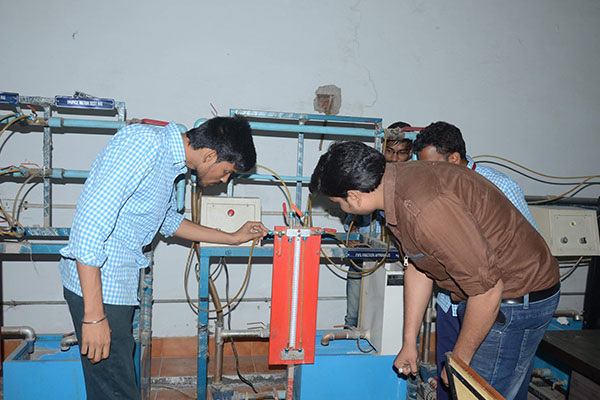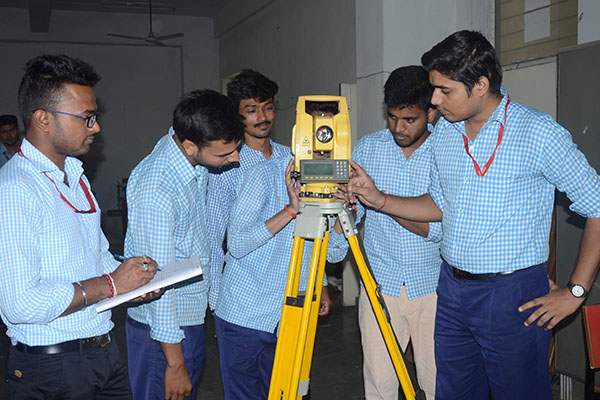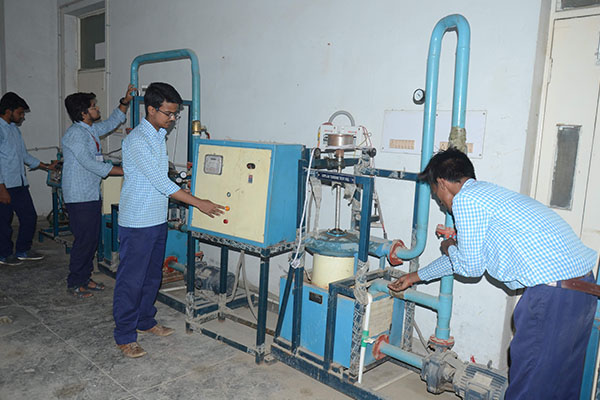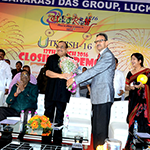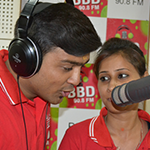PEOs, POs & PSOs
Program Educational Objectives (PEOs)
The educational objectives developed by the Department for its undergraduate program reflect our commitment to providing a program that produces graduates who, within three to five years of graduation, will:
- PEO1 Demonstrate a high level of technical expertise in civil engineering profession with effective communication and management skills.
- PEO2 Embrace sustained lifelong learning, suitable for the needs of the profession and community.
- PEO3Achieve leading roles by serving the society as ethical and responsible professionals.
Programme Outcomes (POs):
- PO1 Engineering Knowledge: Apply the knowledge of mathematics, science, engineering fundamentals and an engineering specialization to the solution of complex engineering problems.
- PO2 Problem Analysis: Identify, formulate, review literature and analyze complex engineering problems reaching substantiated conclusions using first principles of mathematics, natural science and engineering sciences.
- PO3 Design / Development of Solutions: Design solutions for complex engineering problems and design system components or processes that meet the specified needs with appropriate consideration for the public health and safety and the cultural, societal and environmental considerations.
- PO4 Conduct Investigations of Complex problems: Use research based knowledge and research methods including design of experiments, analysis and interpretation of data, and synthesis of the information to provide valid conclusions.
- PO5 Modern Tool Usage: Create, Select, and apply appropriate techniques, resources and modern engineering and IT tools including prediction and modeling to complex engineering activities with an understanding of the limitations.
- PO6 The Engineer and Society: Apply reasoning informed by the contextual knowledge to assess societal, health, safety, legal and cultural issues and the consequent responsibilities relevant to the professional engineering practice.
- PO7 Environment and Sustainability: Understand the impact of the professional engineering solutions in societal and environmental context and demonstrate the knowledge of, and need for sustainable development.
- PO8 Ethics: Apply ethical principles and commit to professional ethics and responsibilities and norms of the engineering practice.
- PO9Individual and Team Work: Function effectively as an individual and as a member or leader in diverse teams and in multidisciplinary settings.
- PO10 Communication: Communicate effectively on complex engineering activities with the engineering community and with the society at large, such as, being able to comprehend and write effective reports and design documentation, make effective presentations, and give and receive clear instructions.
- PO11 Project Management and Finance: Demonstrate knowledge and understanding of the engineering and management principles and apply these to one’s own work, as a member and leader in a team, to manage projects and in multidisciplinary environments.
- PO12 Life Long Learning: Recognize the need for, and have the preparation and ability to engage in independent and lifelong learning in the broadcast of technological change.
Program Specific Outcomes (PSOs)
The students of undergraduate program in Civil Engineering will have following outcomes:
- PSO 1 An ability to design and conduct experiments, as well as to analyze and interpret data.
- Design of experiment and use of appropriate equipment and techniques for data collection.
- Analyzes experimental data and Validate experimental results.
- PSO 2 An ability to use the techniques, skills and modern engineering tools necessary for engineering practice
- Use of engineering equipments
- Able to analyze engineering problems using software tools.
- PSO 3 A recognition of the need for, and an ability to engage in life-long learning
- Able to use resources to learn new materials not taught in class.
- Ability to list sources for continuing education opportunities.
- Recognizes the need to accept personal responsibility for learning and of the importance of lifelong learning.
Civil Labs
- Surveying Lab
- Fluid Mechanics Lab
- Engineering Geology Lab
- Civil Engineering Material Lab
- Quantity Survey & Estimation Lab
- Civil Engineering Drawing Lab
- Geoinformatics Lab
- Hydraulic Machine Lab
- Geotechnical Engineering Lab
- Environmental Engineering Lab
- Cad Lab
- Cad Lab 1
- Cad Lab 2
- Transportation Engineering Lab
- Structural Detailing Lab
- Air & Noise Pollution Lab
- Concrete Structure Lab
- Traffic Survey & Analysis Lab
- Water & Waste Water Treatment Lab
